The NEPAD/APRM Kenya Secretariat has officially kicked off the second phase of County Peer Review Mechanism (CPRM) in 10 counties (Nakuru, Embu, Murang’a, Baringo, West Pokot, Taita Taveta, Uasin Gishu, Nyandarua, Laikipia, and Kericho)
This comes after the Secretariat hosted the inaugural national summit of the County Peer Review Mechanism (CPRM) on 7th August, 2024, where governors who participated in the first phase of CPRM engaged in discussions and exchanged ideas on improving service delivery and ensuring that governance practices align with the needs and expectations of the citizenry.

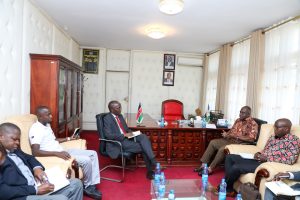

Courtesy visits to Embu, Nakuru and Muranga, Counties ahead of Focus Group Discussions
The second phase of CPRM entails indepth Focus Group Discussions (FGDs) and Key Informant Interviews (KIIs) with representatives among them PWDs, women, academia, bodaboda, area chief, religious leaders and youth representative in every ward of each county to give their perception on the 14 devolved functions and other cross cutting issues.
These FGDs and KIIs are set to gather insights into governance challenges and successes across all the 14 devolved functions in the counties. The findings will later feed into a comprehensive review process that enables counties to assess their performance, promote good governance practices, and help county governments to comply with constitutional requirements that they be based on democratic principles and the separation of power. The results will be shared during the second CPRM summit where governors can exchange best practices and collaboratively address governance gaps
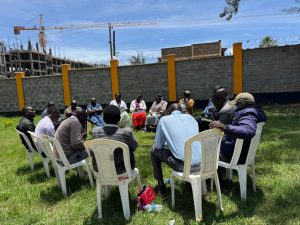
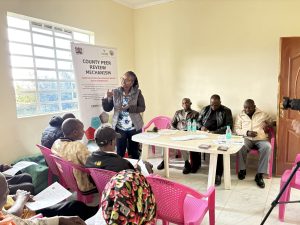
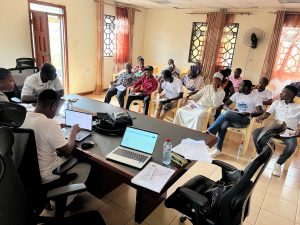

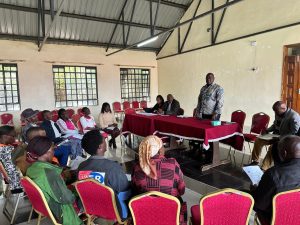
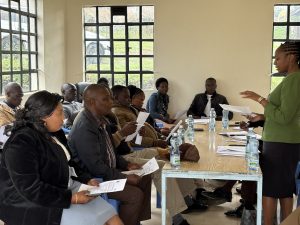
Ongoing Focus Group Discussions in various wards
The Secretariat has highlighted the transformative potential of CPRM in strengthening devolved governance. It provides tools for citizen engagement and mutual accountability, ensuring that local development plans are co-created with public participation. This approach fosters democratic dialogue between leaders and citizens while improving service delivery performance.
Kenya stands out as a pioneer in applying APRM principles at the sub-national level. The initiative is expected to deepen responsiveness to public demands and entrench a culture of openness across county governments. By leveraging CPRM, counties can address challenges such as resource mismanagement and inefficiencies in service delivery.
As the FGDs continue in the ten counties, the Secretariat aims to set a benchmark for governance excellence. The findings from this phase will contribute to a broader effort to cascade APRM principles nationwide. Ultimately, the initiative seeks to empower counties to deliver better services while fostering socio-economic development through enhanced accountability.
